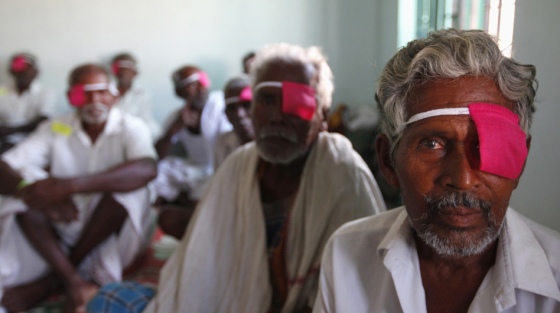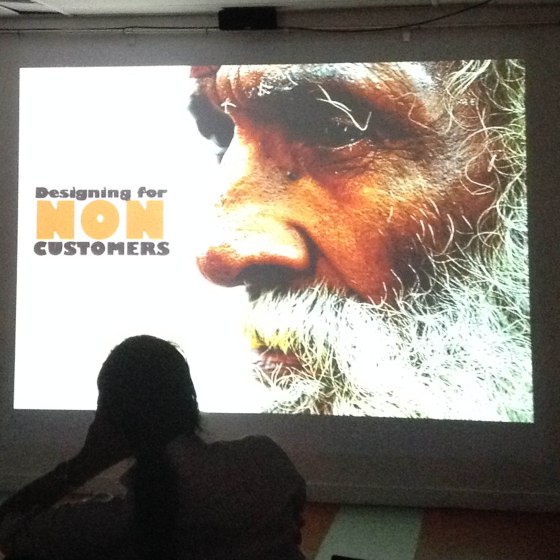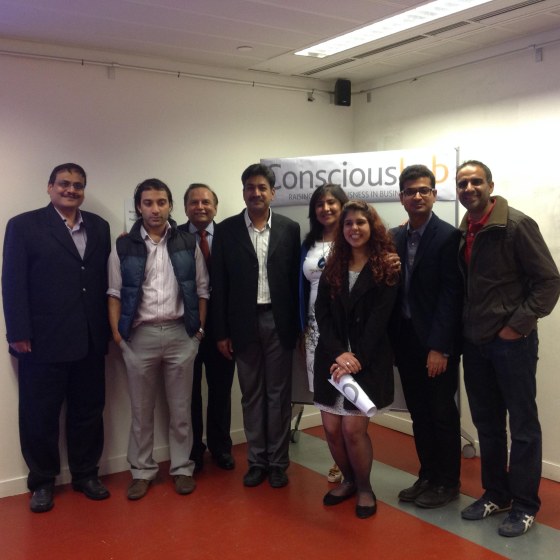Andy Hix attended the talk by Dr Venkatesh, at ConsciousLab London. It led to a meaningful discussion on social businesses and role of a conscious approach in future of business. He shares some of his thoughts below.
You might think that one of the most important things that a new business needs to do is find some customers. Not necessarily, it turns out. When Dr Venkataswamy (Dr V) set up his Aravind Eye Hospital in Pondicherry, India, he targeted customers who couldn’t afford to pay. In the process, he created a service one hundred times more efficient than the NHS with the aim of eradicating needless blindness worldwide.
This month, ConsciousLab hosted a talk from Dr Venkatesh, one of Aravind’s Eye Surgeons. If you’ve ever wondered what a truly ‘conscious’ business might look like, Aravind seems a very plausible example.
Dr V was inspired by the teachings of the yogi Sri Aurobindo Ghosh to create a conscious business that puts compassion, passion, perfectionism and equality at its core.
Aravind has always had a policy that its patients can choose not to pay. They have an aspiration to give sight to all and to treat all as one. Its staff are equipped not only with special surgical skills, but with the value of selfless giving to others.
Starting in 1977 with no money, no business plan, no safety net, seven staff and eleven beds, the network of clinics that Dr V launched now carries out 1,500 surgeries a day, a third of whom pay nothing for the service.
Counter-intuitively, it seems that creating a service for ‘non-customers’ was great for business. It led to a ruthless drive to reduce the cost of each procedure, allowing Aravind hospitals to undercut their competition by 25-30%, and bringing in enough paying customers to fund its whole operation, with some leftover for expansion.
Dr V found that making the service free wasn’t enough to attract the poorest in from the streets, however. A bit of field research revealed that it would cost someone around 350 rupees to visit his clinic, when transport, loss of earning and other expenses were factored it. So he created outreach clinics with doctors that operate remotely to reduce the cost.
Again turning normal business principles on their head, Aravind seeks to give away its expertise. They train their competition, even when its the next door hospital, believing that sharing makes you stronger. They work with over 300 hospitals worldwide to help improve their efficiency and effectiveness. They helped Malawi go from 450 procedures per year to 450 per month.
Dr Venkatesh said that the spiritual principles that guide their work were never pressed upon him by Dr V. He just remembers as he was training being told to focus only on the operation he was doing – not thinking about the past or what he might have for lunch. He said this guidance has vastly improved the quality of his operations.
So what can other businesses learn from this model that turns received wisdom on its head? For me it really brought home the power of having an inspirational vision, and having your values at the core of everything you do. When you have that, anything is possible.
About the Author: Andy Hix is a mindfulness teacher who’s company, Zen@Work specializes in using mindfulness to help reduce stress and improve focus in the workplace. You can read more from him on his blog.
.



